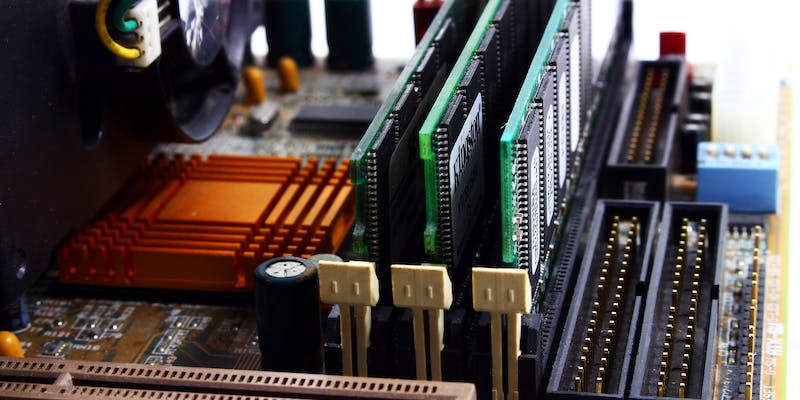In a groundbreaking move, Samsung has recently introduced a new kind of PC memory that promises to revolutionize the landscape of AI computing. This innovative memory technology, called Low-Latency Wide I/O (LLW) DRAM, boasts high bandwidth and low latency, positioning itself as a potential competitor to DDR5 and a solution tailored explicitly for AI workloads. With the ability to deliver up to 128GB/s of bandwidth while consuming minimal power, LLW DRAM could pave the way for a new era of efficient and localized AI processing. However, several questions remain regarding its practical applications and compatibility with existing systems.
Specifications of the new memory
Samsung’s LLW DRAM introduces a memory module with impressive specifications. With a claimed bandwidth of 128GB/s, this memory solution offers throughput comparable to DDR5-8000 modules. Furthermore, LLW DRAM accomplishes this high bandwidth while operating on remarkably low power consumption, with only 1.2pJ/b of energy required per unit. This power efficiency hints at the potential suitability of LLW DRAM for resource-constrained devices such as smartphones and laptops, where efficient AI processing is in high demand.
Introduction to Low Latency Wide I/O (LLW) DRAM
Designed with AI applications in mind, LLW DRAM represents a significant leap forward in localized AI computing. The increasing reliance on AI models necessitates efficient and low-latency memory solutions that can support AI processing on-device rather than solely relying on cloud-based resources. LLW DRAM ensures that AI models can run locally, minimizing latency and enhancing privacy and security.
Features and Performance of LLW DRAM
The standout feature of LLW DRAM is its exceptional bandwidth capability. With a throughput of 128GB/s, LLW DRAM matches the performance of DDR5-8000 modules. This high bandwidth enables seamless handling of vast amounts of data, facilitating the complex calculations required for AI workloads. Moreover, LLW DRAM achieves this impressive throughput while maintaining low power consumption levels, making it a promising choice for mobile and compact devices.
Unanswered questions and potential applications
Despite its impressive capabilities, certain aspects of LLW DRAM have not yet been disclosed. Notably, the exact operating speed of LLW DRAM and its compatibility with existing systems remain unknown. These unanswered questions limit our understanding of the full potential and applications of LLW DRAM. However, given its focus on AI-specific operations, LLW DRAM is likely to find initial adoption in devices or systems where AI processing is utilized.
Addressing AI challenges
The rise of AI presents significant challenges for companies like Samsung. As AI models increasingly migrate from cloud-based solutions to local devices, the demand for efficient and powerful memory technologies will surge. LLW DRAM could be a crucial part of the solution, supporting the seamless transition of AI models to on-device processing. By offering high bandwidth and low power consumption, LLW DRAM can enhance AI performance while minimizing energy usage.
Samsung’s LLW DRAM opens up exciting possibilities for the future of AI computing. With its impressive bandwidth capabilities and energy efficiency, LLW DRAM could play a vital role in enabling localized AI processing and reducing dependence on cloud-based resources. However, the true scope of LLW DRAM’s impact and its compatibility with existing systems and devices must be further explored. As technology continues to evolve, LLW DRAM could potentially bridge the gap between AI models and the devices they operate on, fueling continued advancements in AI-driven applications.
Nonetheless, additional research, development, and validation are necessary to ascertain the true potential of LLW DRAM. Only time will tell if this innovative memory technology will become a game-changer in the field of AI computing or if further advancements and refinements will be required to fully unleash its capabilities. As the industry evolves and embraces the power of AI, the continued pursuit of memory solutions like LLW DRAM holds promise to reshape the future of computing.

